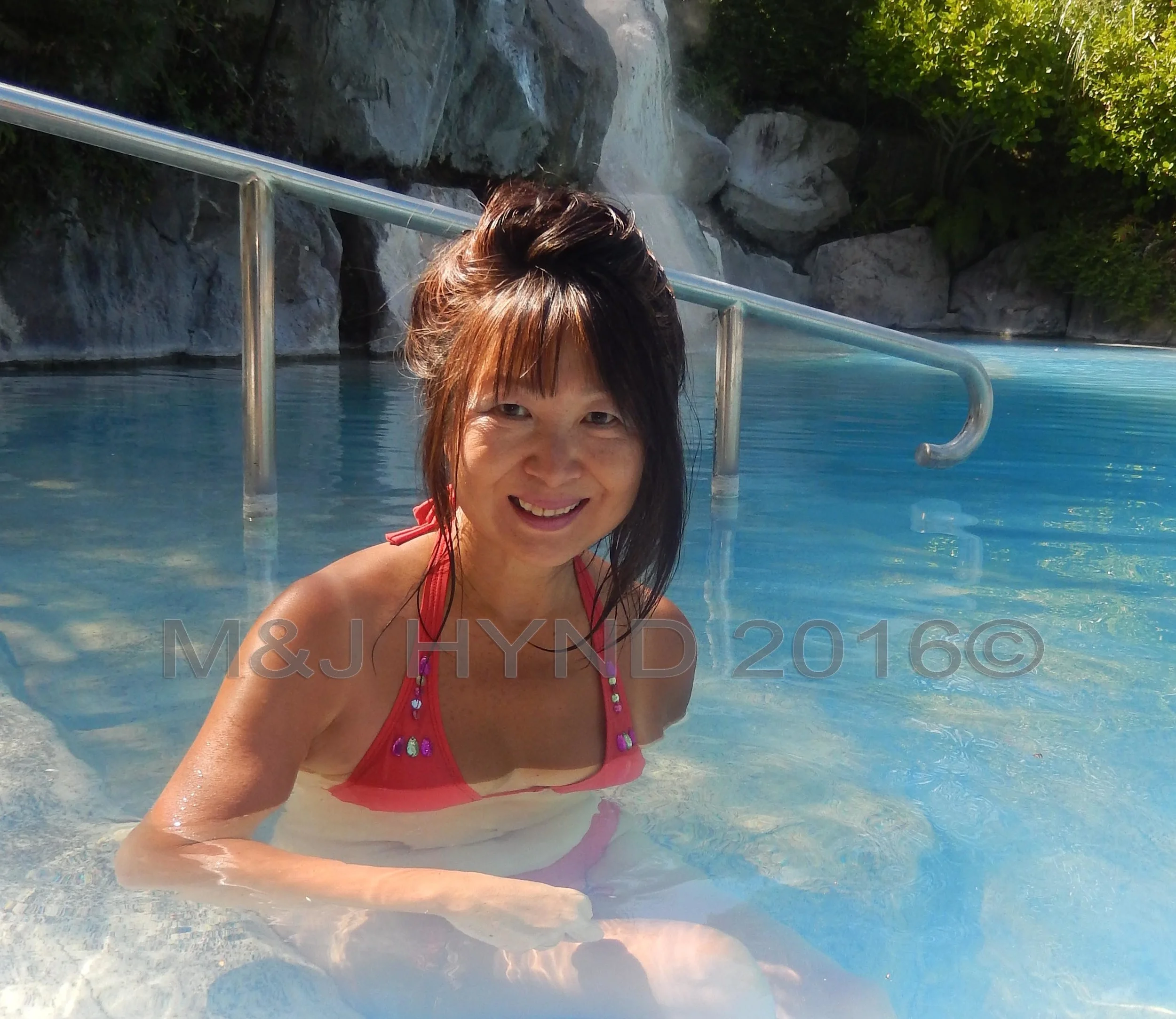Rehab: AUT pool progress2
What hydrotherapy, again? Fab! Hydrotherapy, I find, is good after stroke as it allows muscles to relax in warm water. The exercises on top, generates more uplift and you do feel very well after doing some gentle stretches. Dependent on the capabilities of the patients in the pool, the warm water, and overseeing by the hydrotherapist, the pool is an environment which allows the patient to attempt more adventurous activities that perhaps would not be possible on land. As is usual we arrived before time, so I had a look at the magazines on offer. I could've helped myself to coffee, or tea but I thought: spending an hour in the water, just shortly, no thanks at the moment.
Clarification: the banner photo isn't the AUT rehab pool in Auckland... oh really? (chuckle).... It's the Wairakei Terraces Thermal Health Spa complex just outside the central North Island (NZ) town of Taupo, which is one of the foremost geothermal regions in New Zealand, next to Rotorua. I guess the first session with AUT in a warm-ish pool broke the ice ... so for now don't get between me and any chance of a dip in a natural hot pool.
Changed, showered. When it was my turn to go into the pool, I stepped carefully into the heated water and luxuriated. The soft music was playing my one of my favourite albums that I could bop along to and reminisce ...
Way back in school, in Penang, Malaysia: I was the choir conductor for some of the time; played piano for some of the other times; arranged the music for rest of the choir; … and sang. At times : 'a cappella' (without instrumental music or accompaniment) with the rest of the choir. We even went 'carolling' together at Christmas time, collecting donations which were given to the school's donating pool. [I was from girls convent school, which was the oldest girls' school in Penang as well as in Malaysia.] I vaguely remember us, going on the long, winding road around the island (that was the hotels circuit), giving performances to the hotels that requested us to perform. Gosh; those were the good ole days!
But I digress...
The hydrotherapist also worked on my right hand, in the pool. After the initial warm up session, say 10 minutes, and the exercises with a changed emphasis depending on my acceptance and getting up to speed on the last instructions:... she worked on getting my hand to un-clench and be pliable....
… I remembered that physio who was from NZ, who was a 'hand' specialist when I was an in-patient at the London hospital, initially when I was recovering from the stroke in the first few months. She did for me, what nobody really did in the Stroke Rehab field, after then, for my right hand. At that time, I was upright because the nurses had got me out of bed in the ward and wedged me upright with pillows; wheel-chaired to the gym for the physios. to attend to me; … and later on wheeled back to the ward.
The physio straddled me, sitting on the plinth behind me at the gym; supporting me (I couldn't move anything on my right, and the left was in a constant agony trying to do the work of the right side) … and worked my arm and hand; tirelessly. She made it all seem so easy. Why couldn't I do it myself? Simple: passively helping my right arm to do all the ranges of motion that were necessary but couldn't do it at the point in time. She was a godsend! After a few weeks of working on me; she was transferred to another part of the physio department. Thanks, to her, wherever she might be today.
In NZ, the hydrotherapist did what a lot of clinicians, possibly would have placed a secondary importance : work on the less receptive part of the body, (which could still be of benefit in the long run) with Stroke rehab. - Anything that could be thought of as useful for my rehab is worthy of consideration.


